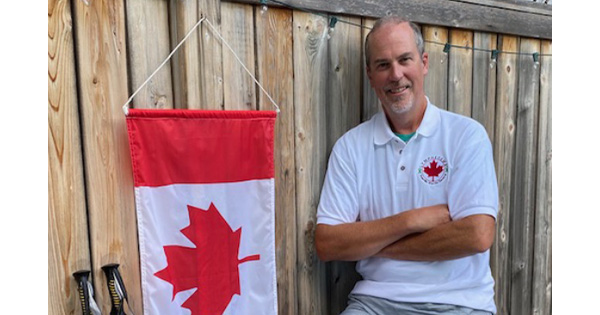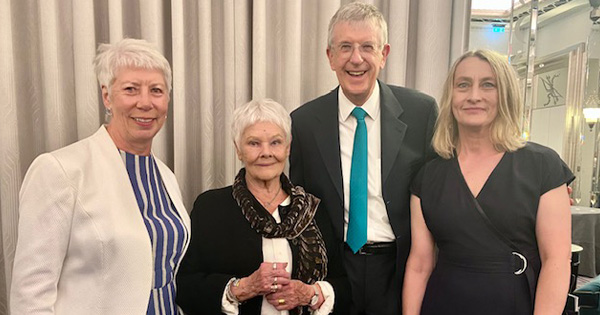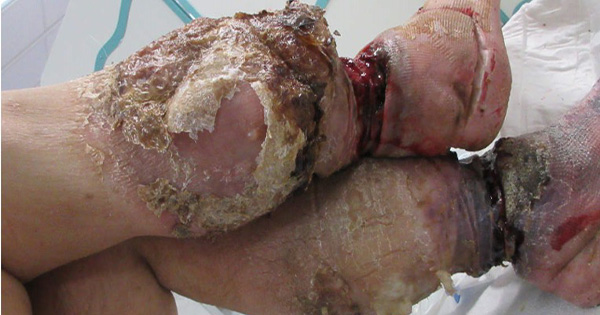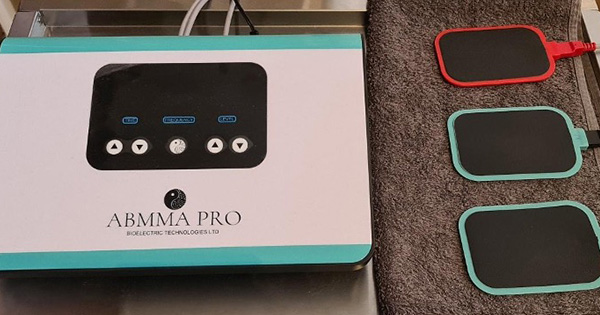“Without continual growth and progress, such words as improvement, achievement, and success have no meaning”
– Benjamin Franklin
Lymphedema – Guerrilla Warrior General (LymphoGWG) presumes (hopes!) there is tremendous importance attached to the study of lymph (lymphology – the physiology and the pathology) in the proverbial and real grand scheme of things within the world of global public health and medicine practices.
This X-themed patient advocate perspective piece is the third in a three-part series offering meant to prompt thought, persuade engagement, and promote unified action for the cause of the fight against lymphatic diseases (LDs), including lymphedema (LE).
To best situate the reader with the offering of an X-themed thesis on a key, heretofore missing, element of need for afflictees of LDs, including LE, plus their caregivers, loved ones and other supporters, a brief overview of the proposals in the previous parts of these commentaries is provided.
Part 1 was Highest common denominator”: is it (yet) time to ‘green light’ a better ‘hook’ for “the cause” … a perspective anew?” (15 August 2022).
Terminology, identity and focus were considered. The need for standardised, consistent terminology was identified to coalesce and focus a range of siloed ideas into a universal, unified identity. While the sea-change evolution from an awareness-only day, essentially limited to regional recognition (Lymphedema Awareness Day, established in the 1990s), to one of global action demonstrated progress and growth (World Lymphedema Day, established in 2016), more tangible effort is needed for LDs/LE to take their rightful place on the public health agenda radar, everywhere. The proposed positive changes would create a focused identity with one universal English-language spelling, plus establish a nexus or hub day of annual activity for education and understanding, globally promoted by a solitary lymph-green colour (lymph-green being the consensus colour to depict lymph in medical school texts and durable good manufacturers promotional posters).
Part 2 was Compression in 2023 and beyond – what we really need! (19 October 2023)
Addressing the absence of true, global, unified community, plus presentation of a beneficial “X-factor” trifecta – outright questioning whether progress for LD/LE afflictees/patients to date was sufficient, the piece emphasised the need for forging and nurturing one unified, global community to replace the array of existing collectivities representing components of the world of lymph/lymphatics, i.e., lymphedema, lymphology, lipedema. With a view to improve the strategy, operation, and tactical approach scenario for the “war” on LDs, and its educational promotions, part 2 was a call-to-action for enhanced teamwork or compression of interests for the cause to ensure cohesive veritas, gravitas and unitas in our world of lymph/lymphatics.
Now to part 3, X marks the spot… and “X factor” marks the need?
Why “X”? There are several personal and many medical reasons. Personally, LymphoGWG is a stereotypical “Generation X” individual. Traits associated with this generation, born between the mid-1960s and the early 1980s, include independence, resourcefulness, and cynicism. While your scribe self-relates more as a realist than a cynic, he has necessarily demonstrated independence and resourcefulness where advocacy for his health and well-being are concerned… notably in facing his decades-long lymphedema-related life challenges.
Furthermore, “X factor” can be generally regarded as an undefinable, intangible factor that can be the difference between success and failure, such as for a cause. This notion of an “X factor” as it applies to one’s health underlies the central messages of this piece, as voiced by an afflictee turned advocate-at-large for the cause.
Health is defined in the constitution of the World Health Organization (WHO) as “a state of complete physical, mental and social well-being and not merely the absence of disease or infirmity”. Linking to Benjamin Franklin’s noteworthy quote at the beginning of this commentary, afflictees of LE dream of improvement, achievement and successful progress where everyone can live without this chronic, progressive scourge of a disease. There is hope for this dream to become reality … with an injected “X factor”.
One should not need an international map for seeking (and achieving) help as an afflictee of LE or other LDs, but as this advocate-at-large has long ago lived and learned… should, could and would are not readily interchangeable where one’s health is concerned. One would truly be a fool to hold this “X”-pectation.
Sadly, if not for personal drive and determination, among other characteristics (chiefly, intellect, curiosity, perseverance, with – frankly – a dose of good luck!), this “Generation X” afflictee would not have achieved the beneficial “X factor” quadfecta as a patient.
Note that there is a distinct and vastly important differentiation between being a hopeless, unattended statistic as an afflictee compared to a medically attended plus cared-for individual who has fortunately attained patient status.
Truth be told, my quality of life would have deteriorated to an unimaginably low level, if the quantity of life permitted even that, given the complexity of the presentation of primary/hereditary LE
Continuing with the “X” theme, what is the beneficial “X factor” quadfecta for a patient? Simply, using medicalese shorthand, it is Dx, Rx, Tx and Px, as follows:
- Dx – timely and competent diagnosis;
- Rx – prescriptive, LE-savvy care;
- Tx – case-specific, appropriate treatment on the continuum of proven modalities of care, ranging from (intensive) conservative to (micro) surgical intervention, which leads to Px; and
- Px – an improved prognosis for quality plus quantity of life/living for the afflictee in her/his attended patient status.
(Note: Quadfecta is expanded from part 2’s “X-factor” trifecta to add Px.)
Regardless of evident symptomology (Sx) becoming apparent in an afflictee, a medical practitioner must have the training to identify and understand the presence of a chronic disease (which is progressive). Too many afflictees, whether female lymphie or male lympho types, go unattended, leading to feelings of frustration, hopelessness and despair.
How, one might ask, does this proverbial “crack” in the medical/health care system(s) exist? Why/where is there insufficient available, accessible, affordable medical attendance by qualified practitioners? An “X”-planation of this problem can seem elusive.
An “X”-amination of the mainstream medical infrastructure does shed some light on legitimate queries such as these.
For example, using LymphoGWG’s lived experiences, I start with the frontline members of the medical community in Canada. Despite having presented with Sx of LE for several years, there was no authoritative Dx. This was (and is) not surprising in the North American context, as evident in published reports indicating the paucity of lymphology-lymphatics instruction in post-secondary medical institutions in Canada and the US. (See for example Rockson et al, 2004; Hodgson et al, 2011; Rockson 2017.)
When increasing concern developed in my mind about what I have, much less what I could do about it, plus where to get any help, I reached out to Ontario’s Ministry of Health for information on seeking out a lymphology specialist or a family physician/general practitioner with lymphology credentials. After all, the reality-based truism is that “doctors treat what they know”, i.e. what they have studied in becoming doctors, physicians and surgeons. Sadly, the underwhelming response was that lymphology was not recognised, nor tracked by the government’s systems/database, so I was advised I would need to consult with potential health providers with “an interest in” lymphology. It was this Sisyphean-type task of a search that led me to the offices of various credentialled, recognised, certified medical specialists in internal medicine, general surgery, infectious diseases, dermatology, urology, oncology, allergy treatment, vascular surgery and palliative care, among others. During one particularly bad flare-up episode that required urgent and immediate hospital attention and care, I was introduced to a practitioner who even identified as an emergentologist.
None of these specialists was able to provide me with a peace-of-mind diagnosis. For this reason, my consultations further expanded diligently on a parallel track of inquiry into the non-traditional fields of naturopathy plus homeopathy, without benefit of Benjamin Franklin’s “improvement, achievement and success”.
With frustration and hopelessness being the real indicators of growth and progress for my case, my deep-dive researching, widespread consulting (in-person plus virtually) and tireless efforts considerably expanded during the past decades.
Thankful to the editorial team of this global lymphedema publication, Journal of Lymphoedema, for this three-part series platform, this final “X”-themed piece is bolstered by ideas and examples from LymphoGWG’s heartfelt pleas that have been submitted, formally to the International Society of Lymphology (ISL) for its 2023 biennial world congress in Genoa, Italy, with informal extension to the European Society of Lymphology (ESL) for its 2024 congress in Istanbul, Turkey. The anticipated realistic hope had been for thoughtful reply(ies) of assurance for the world of LD/LE afflictees. As at early October 2024 (and counting), there has been no word.
Because this world-class publication has global reach among passionate practitioners of lymphology (the physiology and the related pathology), LymphoGWG poses the salient, simple, and straightforward query, here:
Why is lymphology *not* a recognised, certified and credentialled medical speciality?
My line of inquiry continues to wonder, given that the ISL was founded quite some time ago (1966); an estimated 300+ million people are afflicted with LE, globally; plus, the consensus body of medical/surgical science and research finds that early diagnosis (Dx), prescriptive care (Rx), and appropriate treatment (Tx) on the continuum of available modalities is critical for afflictees of this chronic, progressive disease for which there is (yet!) no cure…
Why is there no recognised, certified, and credentialled medical speciality of lymphology… anywhere, or better yet everywhere?
To amplify this question, this longstanding advocate-at-large for the cause, emphasises that LymphoGWG is not only an active, engaged, vocal advocate of the cause but also a much longer-time afflictee of LE.
I offer poignant context for this important question rendering it painstakingly clear against the parallel backdrop to the comparable “lived” chronology of LymphoGWG (afflictee to patient to advocate). To wit:
1. No authoritative diagnosis (Rx) was determined until 2004;
2. No intensive conservative treatment (Tx) of some success was achieved until 2009; and,
3. No lasting, beneficial treatment (microsurgical intervention) until 2012.
Plus, underscoring the details implied in the question, the afflictee was attended by numerous certified, credentialled and recognizsesd medical specialists from various disciplines, with “an interest in lymphology”, prior to finally receiving a conclusive diagnosis (courtesy of a German radiologist, an American oncologist and a Canadian general surgeon). No lymphologist, per se, was – nor is – available to consult on the complex primary LE presentation of LymphoGWG.
Further, this Canadian afflictee had to travel at significant effort and expense to receive the intensive conservative in-patient treatment (Walchsee, Austria) plus the (micro) surgical expertise and experience (Genoa, Italy) – all after exercising considerable research, perseverance, curiosity plus extensive financial resources to get any type of unassisted help.
Circling back to the introductory ideas of this piece, the “X spot” and “X factor” needs have been noted and marked. For this advocate-at-large, the figurative “T”s have been crossed and the “I”s have been dotted. Yet, at mid-2024, decades after the LE affliction first took hold of my body human, there remains numerous hurdles to afflictees who might be currently facing the situation for which it took me considerable years of self-driven attempts to achieve the beneficial “X factor” status as a patient. The key thinking of this piece, which complements instalments one and two of this three-part series, is that we need recognised, certified and credentialled medical lymphology specialists… everywhere!
Securing the existence of medical specialists known as lymphologists will tremendously aid delivery of appropriate care.
- If… the medical speciality were recognised, credentialled and certified, availability/accessibility/affordability should materialise more readily… whether from the perspective of the afflictee, the practitioner and/or the health/medical coverage insurer.
- If not… perhaps the situation referred to in some circles as a (hidden) epidemic would continue more as endemic.
By definition, an epidemic sees a disease that devastates a population before eventually subsiding. By contrast, endemic is more of a long-term or permanent situation to be evident among certain people. The harsh reality is that epidemics (like pandemics) do eventually subside, with concerted attention and dedicated effort while endemic conveys the regular and continuing occurrence.
With true lymphologists in existence, cure could be an aspirational goal rather than a four-letter word.
With the “X spot” and “X factor” both marked, the question that remains, per the quote from the late Benjamin Franklin, is: Will this “X” revelation have “meaning”… successful meaning? For the health of LE (and other LD) afflictees, everywhere, this advocate-at-large hopes so.
- Please note that the author uses “lymphedema” to show the problem of standardisation of English-language spelling.
- Lymphedema – Guerrilla Warrior General (LymphoGWG) welcomes comments at Facebook ‘Lymph Nexus Canada’ where the mission tag line remains: “Shrinking the Lymphedema World, while Strengthening the Lymphedema Community… upside & down under!”
LymphoGWG extends heartfelt appreciation to the global publication Journal of Lymphoedema for affording this platform. This “X-themed” Patient-Advocate Perspective piece is the third in a three-part series offering meant to prompt thought, persuade engagement, and promote unified action for the cause.







